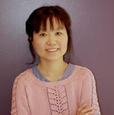Raynaud's disease affects some parts of your body; for example, it causes your fingers and toes to feel cold and numb in reaction to cold temperatures or strain. Women are more prone than men to have Raynaud's disease, also termed as Raynaud's syndrome or phenomenon. It seems to be more frequent in people who reside in colder climatic conditions.
What are the causes of Raynaud's?
The origin of Raynaud's disease is unknown; however, in this disorder, the blood vessels in the hands and feet seem to react to cold temperatures or stress. It triggers the arteries in your fingers and toes to go into vasospasm when subjected to cold or stress. This leads to narrowing of your blood vessels and briefly limits blood supply. As time goes on, these minor arteries can stiffen marginally, further restricting the blood flow. Exposure to cold, for example, when you put your hands in cold water or take something from a freezer, can trigger this disorder. Some studies indicate that emotional stress also plays a role here.
Acupuncture: An oriental remedy
Acupuncture requires the insertion of fine needles through your skin at tactical points on your body. Being a key element of traditional Chinese medicine, acupuncture is most frequently used to deal with pain. Progressively, it is being applied for holistic health and has been proven to aid in stress management as well. Traditional Chinese medicine describes acupuncture as a method that harmonizes the movement of energy or life force known as qi which is considered to flow through routes (meridians) in your body.
How does acupuncture treat Raynaud's disease?
Acupuncture in Raynaud's disease is found to be useful in treating the severity of pain and joint rigidity. It has been reported that acupuncture can lead to a reduced number of incidents as it boosts local microcirculation. Acupuncture for Raynaud's disease eases inflammation, by encouraging the release of vascular and immunomodulatory elements. It also stimulates areas of the brain identified to decrease sensitivity to pain and stress. It helps promote relaxation and deactivates the analytical part of the brain, which is responsible for causing anxiety or worry. It enhances the release of adenosine, which has antinociceptive (anti-pain detection) properties.
The link between Acupuncture and Raynaud's disease
Specific findings in some clinical trials published in J Intern Med journal in 1997 February concluded that traditional Chinese acupuncture is a rational alternative in curing patients with primary Raynaud's disease. It also found that the patients who underwent treatment showed a significant reduction in the incidence of attacks. https://pubmed.ncbi.nlm.nih.gov/9077368/.
Dr Li Zheng is a licensed acupuncturist and herbalist. Graduated from the Beijing University of Chinese Medicine, Li Zheng now has 26 years of clinical experience. She holds a PhD in neuroscience from the US and is a Harvard Medical School-trained researcher and a professor at the New England School of Acupuncture. Her two practices are located in Needham, MA, and Boca Raton, FL. For more information please visit: https://bostonchineseacupuncture.org/ .

Post new comment
Please Register or Login to post new comment.